Wellness as Resistance with Steadfast Herbs
Brie Mazurek, CUESA Staff
August 17, 2018
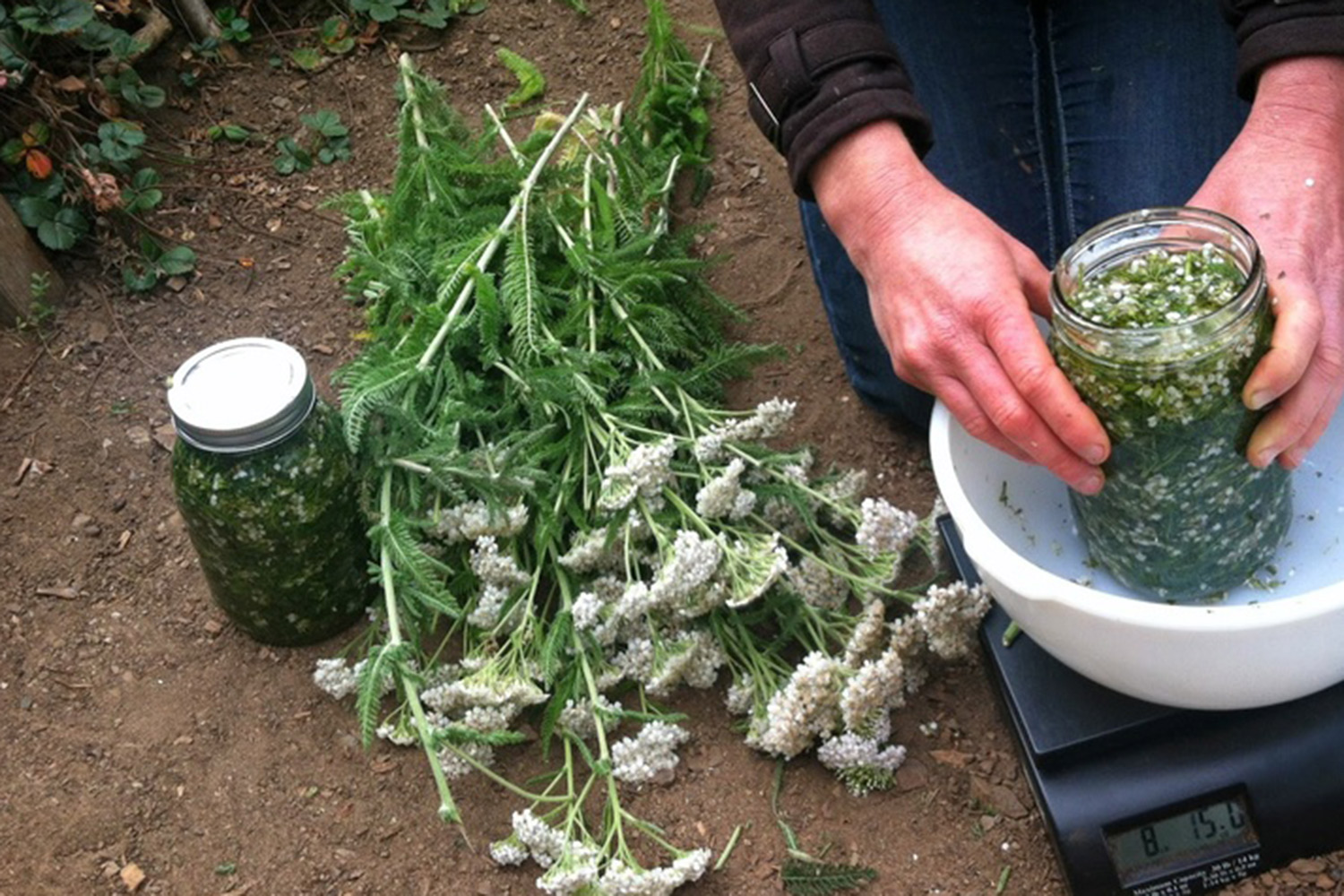
For farmers market shoppers, it’s common to know the farmer who grew your tomato, but you’re less likely to know the person who grew the chamomile and mint in your tea, or the ingredients in an herbal tincture.
That’s something farmer-herbalists Finn Oakes and Lauren Anderson want to change. Having met through their work at San Francisco’s Free Farm and other urban agriculture projects, they discovered a shared passion for organic gardening, herbalism, and social justice, leading them to found Pescadero-based farm and herbal medicine maker Steadfast Herbs.
You can now find Steadfast Herbs’ plant starts and handcrafted remedies at Mission Community Market on Thursday evenings. We spoke with Finn about how self-care is a form of activism, as well as six herbs everyone should try.
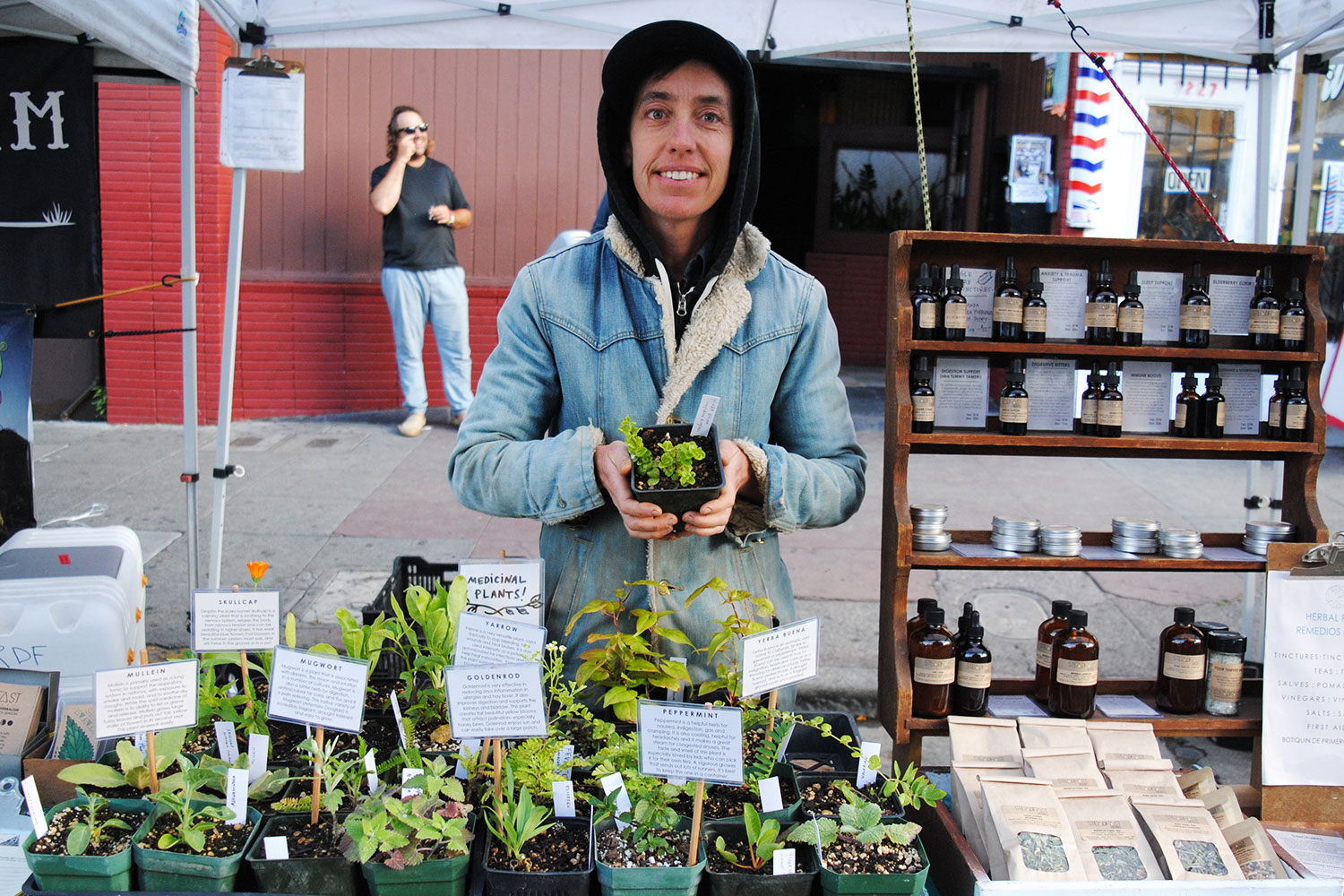
CUESA: How did Steadfast Herbs come to be?
Finn: Lauren and I started Steadfast Herbs about six years ago as an herbal CSA—a seasonal box of remedies based on the equinoxes and solstices. At that point I was in East Bay, and we were both growing herbs in our backyards. We also had all these connections to community gardens, so we were harvesting from those sites as well. Our hope at the time was to harvest everything ourselves locally, so that we would know the sources of the plants and the medicines that we’re making.
Three years ago, we started growing herbs at Root Down Farm in Pescadero. Today we grow around 50 different plants on about half of an acre. We call it our “garden,” since most of it is hand-worked by Lauren and me. We’re growing about 95 percent of what we’re using in our products, which is really exciting and pretty unusual in terms of the herbal world. We’ve been very lucky to be supported by farmer Dede Bois at Root Down Farm, and we wouldn’t be able to do this if she hadn’t offered us the land and housing, which is a big challenge here.
In terms of herbs and herbal remedies, how does what you’re doing differ from what’s commercially available?
Most bulk herbs you find in natural food stores or apothecaries come from large-scale distributors, which are generally importing herbs. What’s interesting is those are often herbs that can be grown here, but they’re imported because of lower labor costs—for example, calendula from Morocco or nettles from Bulgaria. Many small-time medicine makers, especially who live in urban areas, don’t necessarily have access to land for growing herbs, so they are often not able to use local plants.
The Bay Area is luckier than a lot of places in that there are more fresh herbs available from local farms. At Steadfast Herbs, we’ve grown to the point where we were growing more herbs than what we need for our remedies, so we’re starting to grow fresh herbs for other herbalists.
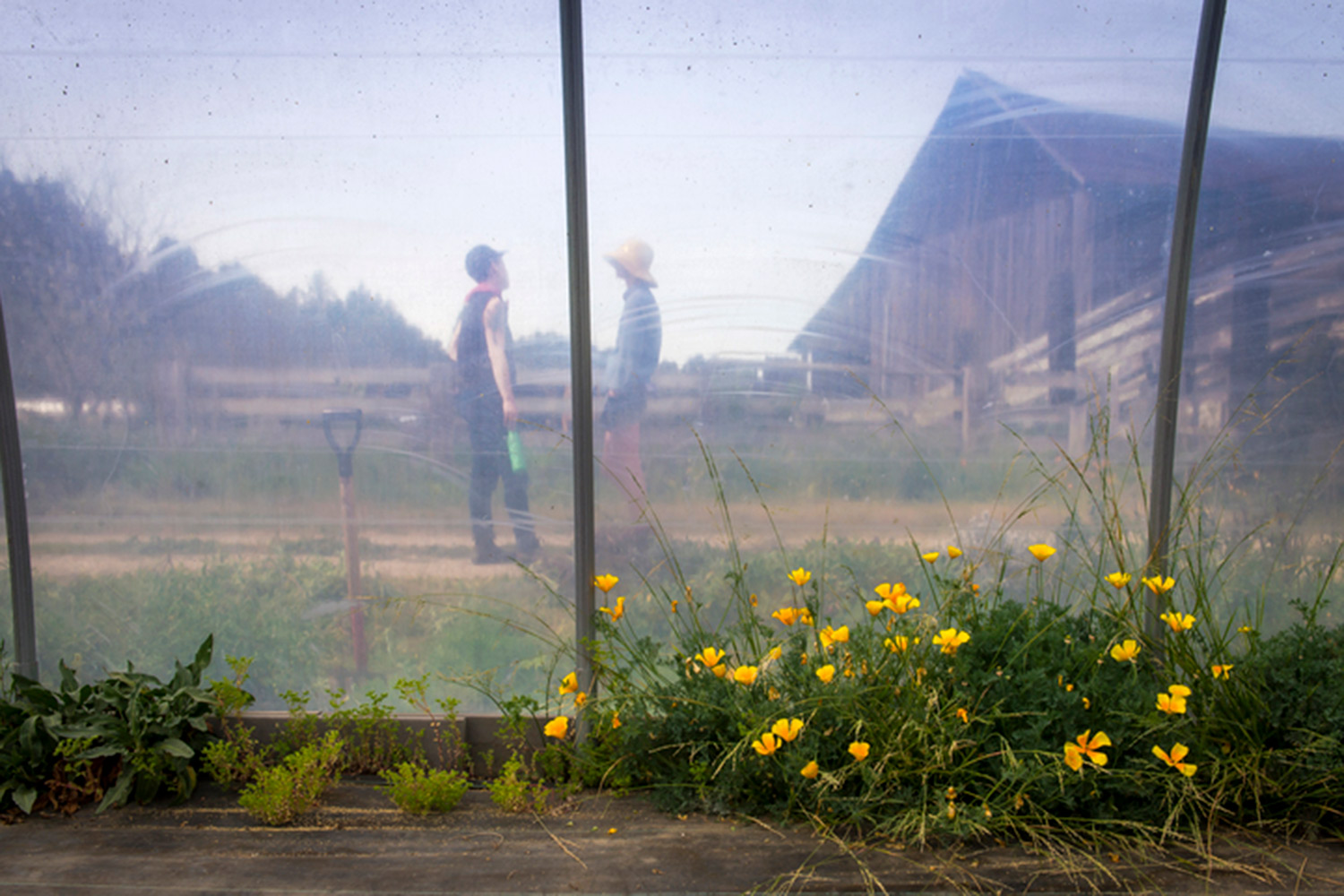
On your website, you say that “Health is political.” Can you talk about how social justice fits into your work?
Lauren and I both identify as radicals and as radical queers. It can be a challenge in many ways to be anti-capitalist running a business, and that’s something that we’re always trying to figure out—how to make our work sustainable for us and have a livelihood, while also making herbal medicines accessible to everyone. I believe that bringing a passion for racial and economic justice can be centered within any project or any business.
At this point, we charge a general rate for our remedies, and we offer donation medicine to a few different nonprofits like Puente in Pescadero and Causa Justa::Just Cause in Oakland. There are often calls for medicine within different movements and crisis points. After the Pulse shooting in Florida, there was a call for medicine for survivors and folks in the community who were feeling the impacts of that traumatic event. There have been calls for medicine for Black Lives Matter actions. After Nia Wilson’s death, there were calls from clinics to help those who were impacted. We are trying to be responsive to those needs for medicine when they arise.
How does herbalism and self-care relate to activism?
There’s more conversation and implementation of the idea of healing justice right now. It’s something that many women and queers of color have been creating a path for and doing for a long time, but I feel like there’s kind of new language around it right now. People are starting to think about how to weave healing into activism, which is exciting.
There’s also something very empowering about herbalism in general. Herbalism is a way that humans have been treating themselves for most of time, while pharmaceutical and industrial medicine are pretty new. Depending on what culture people have grown up in, access to herbal knowledge has become closer or farther through the process of assimilation or colonization. This is not to say that you don’t often need to support a practitioners or doctors, but rather that there’s agency in being able to say, “I’m beginning to feel sick, I can help myself with this remedy”—to take care of your own health, and your loved ones and community.
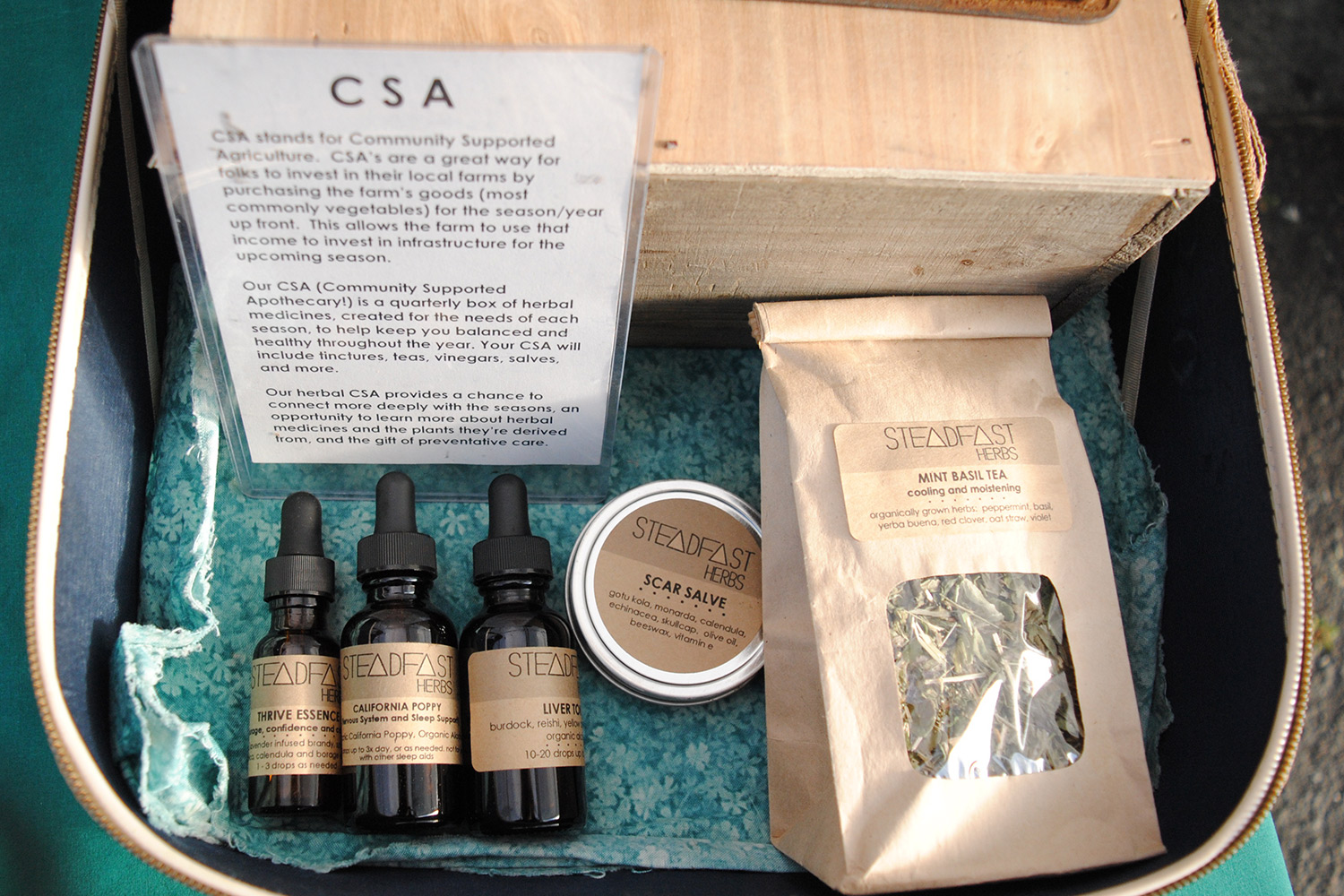
What sort of education do you do at the farmers market?
We’re excited to be talking about the cultivation of herbs, and selling plant starts to help people grow their own. In the Bay Area, there’s an understanding about local food and the impacts on climate, labor conditions, and health, but that hasn’t really totally trickled and the idea of local herbs yet.
One other thing I like to challenge is the fad around the label “wild crafting.” A lot of herbs have been overharvested in the wild. My teachers have taught me that it’s a very colonial relationship to go somewhere that you’re maybe unfamiliar with and harvest plants that might be that the plants of people who have lived there for generations, who might actually be tending to the plants, and then you go and take their medicine. It’s extractive rather than being in a relationship with plants, which is why cultivating herbs is so important.
6 Powerful Herbs You Should Know
Steadfast Herbs offers handcrafted teas, tinctures, tonics, and balms using herbs grown on their farm, as well as plant starts for people to grow their own in their backyard or windowsill garden. Here are a few potent and easy-to-grow herbs they recommend, along with their remedies you can try them in.
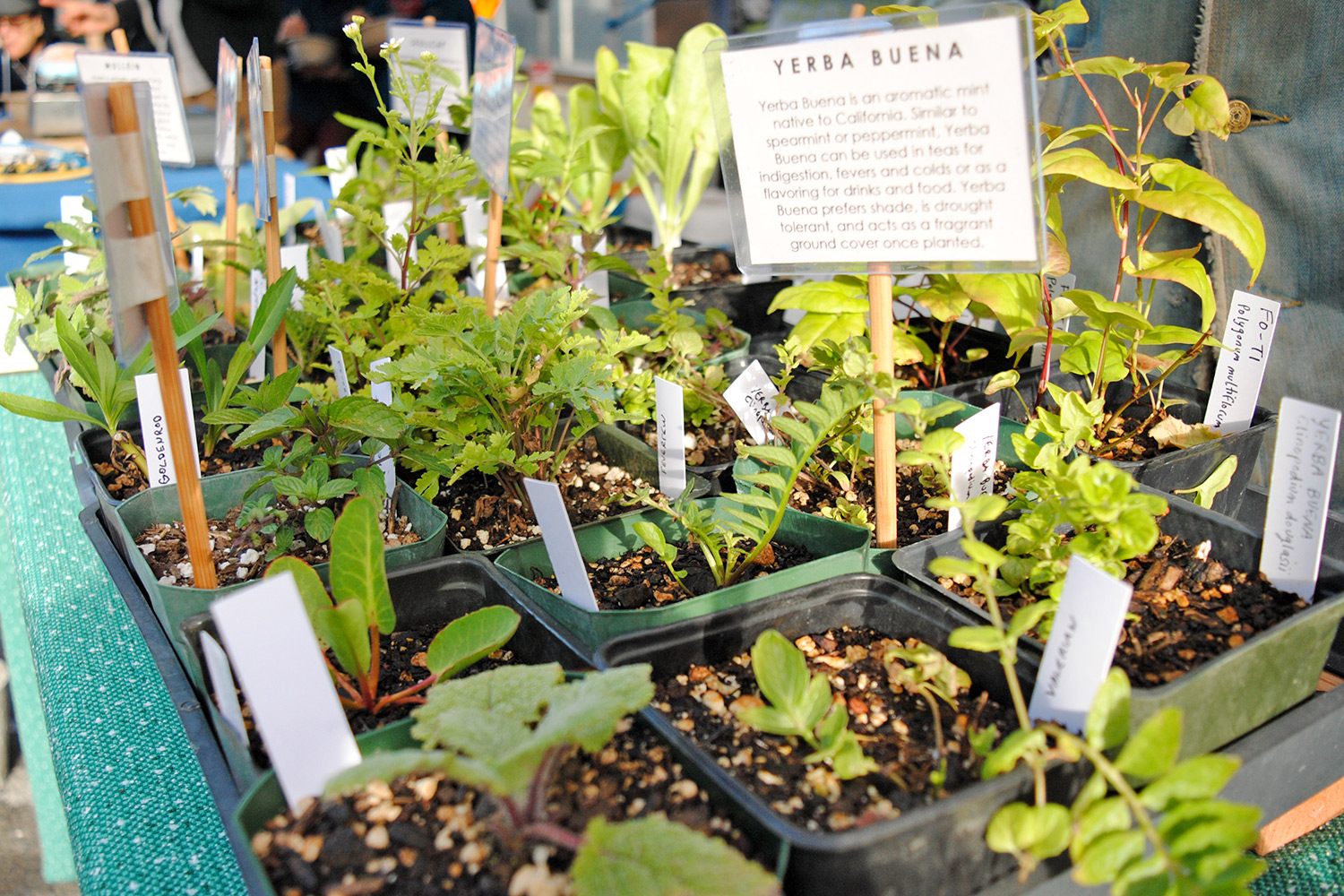
Calendula: Grows easily from seed, and is one of the best herbs for skin. Its bright orange flowers promote tissue repair, ease inflammation, and stimulate the lymph system. Try it in Steadfast Herbs’ Healing Salve, Soothing Salve, and Digestive Repair Tea.
German chamomile: This easy-to-grow, often-overlooked plant is a powerful anti-anxiety herb for adults and children. In addition to its calming properties, it is also antibacterial and antifungal, and can ease indigestion. The fresh plant has a sweet taste to it. Try it in Steadfast Herbs’ Digestive Repair Tea, Digestive Bitters, and Sleep Support.
Lemon balm: A wonderfully fragrant plant that is calming to the mind and a great mood elevator. It is anti-viral, supportive in PMS, and an ally when recovering from sexual trauma. Bees love lemon balm, and it is a prolific runner like mint, so you might want to keep it in a pot or allow it a larger area of your garden! Try it in Steadfast Herbs’ Brightening and Nourishing Tincture, and Uplifting Lemon Lavender Tea
Mugwort: Associated with dreams, the moon, and intuition in many cultures. It is also a bitter herb for digestion, antimicrobial for colds and flus, and pain relieving. The native variety of mugwort (Artemisia Douglasiana) is incredibly fragrant, drought tolerant, and easy to grow. Try it in Steadfast Herbs’ Pain Salve for easing joint and muscle pain.
Skullcap: A mint-family herb that is soothing to the nervous system, relaxes the body from nervous tension, eases anxiety, and can be sedative in higher doses. It has small, beautiful blue flowers that blossom in the summer. It prefers moist soils and will thrive in the ground or in a pot. Try it in Steadfast Herbs’ Anxiety Support Tincture.
Yarrow: A versatile plant used topically to stop bleeding, heal wounds, and heal bruises. Also used internally as a potent anti-microbial for infections and for healing varicosities. Energetically, this plant supports healthy emotional boundaries. This native plant is drought tolerant and grows easily in all soils. Try it in Steadfast Herbs’ Immune Boost Tincture.
Find Steadfast Herbs at the Mission Community Market on Thursdays, 4 to 8pm, and learn more about their herbal CSA program.
Yarrow and greenhouse photos by Steadfast Herbs.
